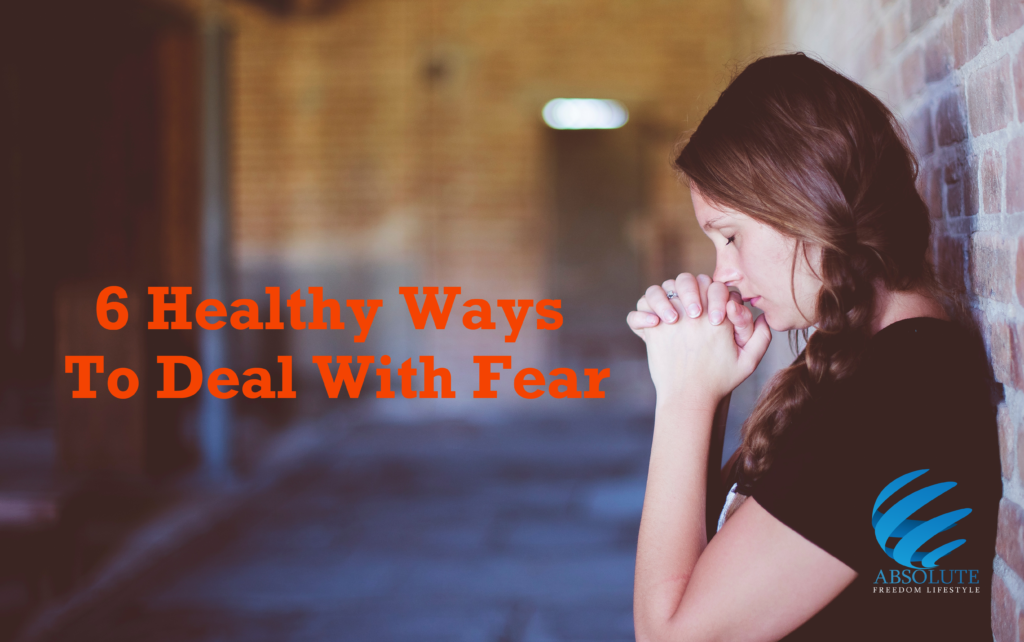Many people experience fear on a daily basis. But for some, fear takes a more significant toll in the form of panic and anxiety. If you deal with chronic fear, you may be wondering if there are ways that you can help yourself cope with the fear of healthy habits.
Finding healthy coping mechanisms to deal with fear and anxiety can help you live a more satisfying life. Here are some helpful ways that you can manage fear in your daily life.
#1 Take a Timeout
The National Health Society recommends that you need to take a timeout if you are flooded with fear or anxiety. Timeout will give you a moment to calm yourself down physically. Once your breathing has slowed, and your heart rate has dropped, you can resume your regular activity.
Distracting yourself from the fear for about 15 minutes can help tremendously. Many people distract themselves by walking around the block, taking a hot bath, reading a book, doing a favorite hobby. No matter how you distract yourself to make sure it is something you enjoy and it consumes your thought process.
#2 Face Your Fear
Many people with chronic fear and anxiety tend to avoid the things that make them anxious or afraid. The University of Minnesota recommends that you avoid avoidance because it will prevent you from moving forward.
Addressing any fearful situations head-on can help you work through your fear. Often if the situation is a source of great fear you may need a professional therapist to help you work through your fear. Working through your anxiety will help you deal with it much faster than avoiding it.
#3 Watch Your Inner Dialogue
Many times, when we are fear or anxiety, we neglect to be conscious of our thoughts. Because of this, we end up creating more fear with our thoughts. We talk ourselves into an even higher state of panic. The Counseling and Wellness Center recommends that you become aware of the things you’re saying to yourself and why they scare you.
Are you saying things that are likely to happen?
Or are your thoughts hyperbolic in nature?
Our inner dialogue may not make much sense sometimes, but one of the first steps to overcoming fear is becoming aware of our internal dialogue.
#4 Healthy Ways To Deal With Fear
When people are frightened and anxious, their bodies don’t work the same way that they do when in a calm and relaxed state. Mentalhealth.org recommends that you identify the physical demands that fear places on your body.
Once you can identify the physical demands that fear and anxiety are placing on your body, you can begin to counteract them through conscious acts like deep breathing and relaxation exercises.
If you know that you breathe rapidly every time you’re fearful, deep breathing exercises may help calm you down before you are fully encompassed in your fear.
#5 Understand That Fear Is Primal
Psychology Today points out that fear is something that originates in our amygdala and is designed to be a life-saving mechanism. Unfortunately, in modern society are fear warning signals have gone haywire.
Most of the fears that we have are not life-threatening and may not even be in the realm of possibility. Once you realise that fear is your body’s way of attempting to protect you it may help you ditch the emotion and detach from your fear.
#6 Seek Help
If you’re experiencing chronic fear on a daily basis, Psychology Today recommends that you seek help from a professional. Professional anxiety, fear, and OCD counselors are trained in techniques that can help you overcome your fear. These are healthy ways that expose you to your concerns in a safe environment and allow you to work through your fear.
No matter what your fear is, you can overcome and move past it. Use the at-home coping techniques as well as professional help can help you live a full and rewarding life.


